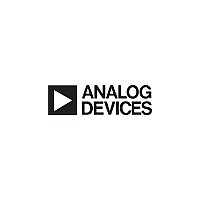AD1821 Analog Devices, AD1821 Datasheet - Page 21

AD1821
Manufacturer Part Number
AD1821
Description
Manufacturer
Analog Devices
Datasheet
1.AD1821.pdf
(44 pages)
Available stocks
Company
Part Number
Manufacturer
Quantity
Price
Company:
Part Number:
AD1821JC
Manufacturer:
TOKO
Quantity:
1 027
Part Number:
AD1821JS
Manufacturer:
ADI/亚德诺
Quantity:
20 000
AD1821 Plug and Play Device Configuration Registers
The AD1821 may be configured according to the Intel/Microsoft Plug and Play Specification using the internal ROM. Alternatively,
the PnP configuration sequence may be bypassed using the “Alternate Key Sequence” described in Appendix A.
The operating system configures/reconfigures AD1821 Plug and Play Logical Devices after system boot. There are no “boot-devices”
among the Plug and Play Logical Devices in the AD1821. Non-Plug and Play BIOS systems configure the AD1821’s Logical
Devices after boot using drivers. Depending on BIOS implementations, Plug and Play BIOS systems may configure the AD1821’s
Logical Devices before POST or after Boot. See the Plug and Play ISA Specification Version 1.0a for more information on configura-
tion control. To complete this configuration, the system reads resource data from the AD1821’s on-chip resource ROM and from
any other Plug and Play cards in the system, and then arbitrates the configuration of system resources with a heuristic algorithm. The
algorithm maximizes the number of active devices and the acceptability of their configurations.
The system considers all Plug and Play logical device resource data at the same time and makes a conflict-free assignment of re-
sources to the devices. If the system cannot assign a conflict-free resource to a device, the system does not configure or activate the
device. All configured devices are activated.
The system’s Plug and Play support selects all necessary drivers, starts them and maintains a list of system resources allocated to each
logical device. As an option, system resources can be reassigned at runtime with a Plug and Play Resource Manager. The custom
setup created using the manager can be saved and used automatically on subsequent system boots.
Plug and Play Device IDs (embedded in the logical device’s resource data) provide the system with the information required to find
and load the correct device drivers. One custom driver, the AD1821 Sound System driver from Analog Devices, is required for cor-
rect operation. In the other cases (MIDI, Game Port), the system can use generic drivers. Table III lists the AD1821’s Logical
Devices and compatible Plug and Play device drivers.
Logical Device Number
0
1
2
The configuration process for the logical devices on the AD1821 is described in the Plug and Play ISA Specification Version 1.0a (May
5, 1994). The specification describes how to transfer the logical devices from their start-up Wait For Key state to the Config state and
how to assign I/O ranges, interrupt channels and DMA channels. See Appendix A for an example setup program and specific Plug
and Play resource data.
Table IV describes in detail the I/O Port Address Descriptors, DMA Channels, Interrupts for the functions required for the AD1821
Logical Device groups.
REV. 0
Register Type-Register Name
AdLib
MIDI MPU-401
Game Port
Music0: Address (w), Status (r)
Music0: Data (w)
Music1: Address (w)
Music1: Data (w)
MIDI Data (r/w)
MIDI Status (r), Command (w)
Game Port I/O
0x100 – 0x3F8
Table III. Logical Devices and Compatible Plug and Play Device Drivers
Emulated Device
Sound System
MIDI MPU401 Compatible
Game/Joystick Port
Register PC I/O Address
0x(Adlib Base) Relocatable in Range 0x100 – 0x3F8
0x(Adlib Base+1)
0x(Adlib Base+2)
0x(Adlib Base+3)
0x(MIDI Base) Relocatable in Range 0x100 – 0x3F8
0x(MIDI Base+1)
0x(Game Base +0 to Game Base +7) Relocatable in Range
–21–
Compatible (Device ID)
—
PNPB006
PNPB02F
AD1821
Device ID
ADS7180
ADS7181
ADS7182













